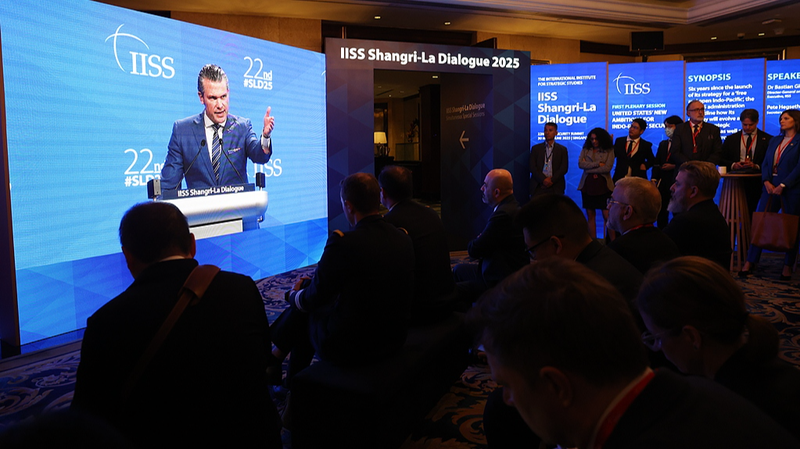At the 22nd edition of the Shangri-La Dialogue in Singapore, U.S. Secretary of Defense Pete Hegseth urged Asia-Pacific nations to boost military spending against what he called China’s “imminent threat.” But analysts and academics from across the region have pushed back, labeling his remarks provocative and potentially harmful to regional stability.
Shortly after the speech, Dylan Loh, assistant professor in the Public Policy and Global Affairs program at Singapore’s Nanyang Technological University, noted that most countries in the region don’t share Hegseth’s sense of urgency. “Short of a very few countries, not many in this part of the world see China as an imminent threat and would up their defense spending,” he told Al Jazeera.
Rommel Banlaoi, chairman of the Philippine Institute for Peace, Violence and Terrorism Research, was equally skeptical of Washington’s motives. “The idea of the U.S. positioning itself as a 'stabilizer' in the region is deeply flawed,” Banlaoi said. He pointed to the U.S.’s own track record of interventions in the Middle East, arguing that China, in contrast, has not initiated any regional wars.
Da Wei, director of the Center for International Security and Strategy at Tsinghua University, described Hegseth’s remarks as “highly provocative” during a group interview in Singapore. He warned that the defense chief’s speech telegraphed an ambitious, confrontational Indo-Pacific strategy that clashes with the U.S.’s calls for respect and cooperation.
“The U.S. urges Asia-Pacific countries to collaborate with it and pressures them to increase defense spending, but at the same time, it imposes tariffs on these countries, stalling their economic development,” Da Wei said. “This significantly undermines the credibility of the U.S.’s intentions.”
Da Wei also suggested that Hegseth’s comments may have been premature, arguing the defense chief should have waited for a unified U.S. stance under President Donald Trump. “To directly attack China in such a security forum is, in my opinion, inappropriate,” he added.
Fellow CISS senior fellow Zhou Bo raised another concern: alliances built on compliance and transactions risk eroding trust. “If allies follow Washington’s demands, the U.S. will offer support,” he said. “But this transactional relationship raises doubts among many in the region.”
As Asia-Pacific nations continue to seek their own pathways to peace and prosperity, regional experts warn that confrontational rhetoric may deepen divisions rather than foster the cooperation needed for lasting stability.
Reference(s):
Experts criticize Hegseth's remarks as provocative, harmful to region
cgtn.com



